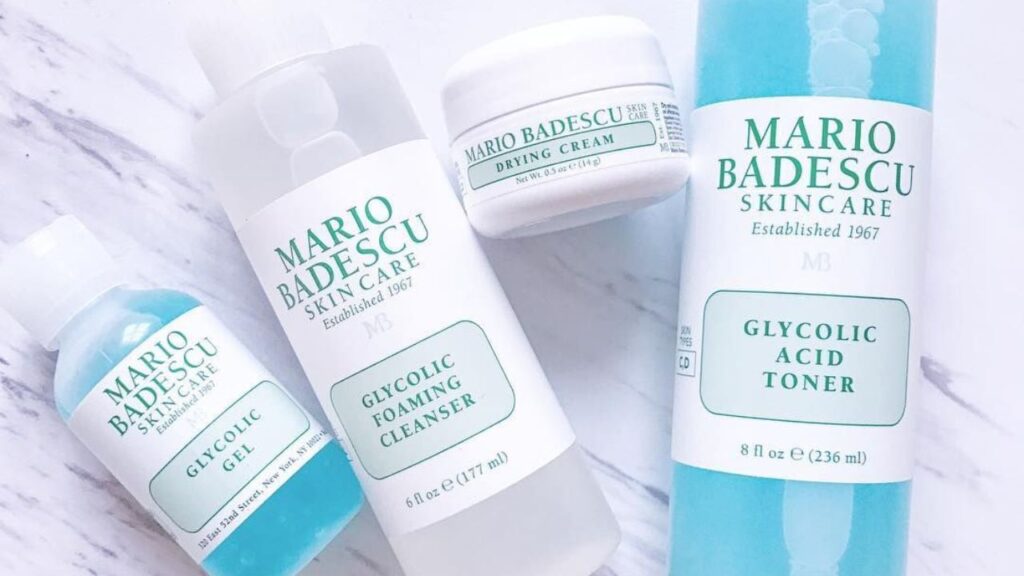A toner is a skincare product that removes traces of dirt and oil from your skin. It also helps to balance pH levels and can tighten pores, giving your skin a refreshed and clean feeling.
“What Does Toner Do for Your Skin? delves into the essential role of toner in skin care. It effectively cleanses residue, balances pH levels, and primes skin for moisturizers. Toner also tightens pores, refreshes the skin, and boosts the efficacy of other skincare products in your daily regimen.
Toner helps balance your skin’s pH levels, keeping it healthy and resilient. It tightens pores, reducing their appearance and preventing breakouts. Additionally, toner removes traces of dirt and oil, leaving your skin refreshed and ready for moisturizer. Incorporating toner into your routine can promote clearer, smoother skin over time.
What is a skin toner?
A toner is typically a water-based lotion or tonic that you apply after cleansing and before moisturizing. While it may resemble water in appearance and texture, its purpose goes beyond that; consider it a primer for the subsequent steps in your skincare routine. A toner may also be referred to as a tonic, an exfoliating acid, or an essence.
“They used to have a high alcohol content, which could be excessively drying. Modern toners focus more on hydration and soothing properties. They prepare your skin for the application of other cosmetics and products that follow, rather than merely stripping away oil and dirt.”
Various toners can be found in stores or online, some infused with ingredients like peppermint, aloe, or eucalyptus to provide skin-soothing benefits.
It’s important not to confuse a toner with an astringent. Astringents are typically alcohol-based and are used to manage oil production; however, they can be harsh and lead to skin dryness. A toner delicately revitalizes your skin without depleting its moisture.
What does toner do for your skin?

What does toner do for your skin? It eliminates any residual dirt or grime post-cleansing, but in a gentle manner.
Additionally, toners aid in priming your skin for subsequent product applications such as serums, moisturizers, and night creams. The outer skin layer comprises oils and proteins. After cleansing, the removal of dirt and dead skin can leave this layer feeling dry.
Dr. Eric points out, “By applying toner immediately after cleansing, you boost the moisture content of the outer skin layer, facilitating better absorption of subsequent products. It functions like a sponge, aiding the penetration of other skincare ingredients.”
Some other benefits of using a facial toner include:
-
it hydrates the skin.
With their high water content, toners can effectively hydrate your skin. Ingredients like hyaluronic acid further boost skin hydration.
-
Minimizes pore appearance.
According to Dr. Eric, toners can give the illusion of smaller pores, though reducing their actual size is quite challenging.
-
Balances skin pH.
Dr. Eric explains that acids such as alpha-hydroxy acids, beta-hydroxy acids, lactic acid, salicylic acid, and glycolic acid found in moisturizers can restore the skin’s pH balance. Toners play a key role in this process.
As for the timeline for visible results from using a skin toner,
“It typically requires six weeks to three months to notice any effects from using a toner,” Dr. Eric highlights. “Though subtle, this improvement enhances the effectiveness of other skincare products.”
If your toner targets acne prevention or hyperpigmentation reduction, results may appear in two to three months. Dr. Eric suggests that long-term benefits, especially in anti-aging, are more noticeable with consistent toner use.
“Immediate changes may not be evident. Over a few years, you’ll observe your skin aging less.”
When to use toner on the skin

Toner should be used after cleansing and before applying any serums, moisturizers, or treatments in your skincare routine. After cleansing, pat your skin dry gently with a towel. Then, pour a small amount of toner onto a cotton pad or your hands and gently swipe or pat it onto your face and neck.
The purpose of using toner at this stage is to remove any remaining traces of cleanser, makeup, or impurities while also balancing the skin’s pH levels. This prepares your skin to better absorb the active ingredients in subsequent skincare products, maximizing their effectiveness. Follow up with your preferred serums, treatments, and moisturizers to complete your skincare regimen. For optimal results, use toner both morning and night as part of your daily skincare routine.
Choosing the best toner for your skin
As with many skincare options, there isn’t a one-size-fits-all product out there. Toners come in various formulas that cater to your skin tone, type, and concerns.
“It’s crucial to scrutinize the ingredient list. Firstly, check for the presence of alcohol and its concentration,” advised Dr. Elis. “A slight amount of alcohol can benefit those with oily skin or acne.”
Here’s what to look for or avoid based on your skin’s needs:
Oily Skin:
Look for toners with ingredients like salicylic acid, witch hazel, or tea tree oil to help control excess oil and minimize pores.
Avoid toners with heavy oils or alcohol, as these can strip your skin and potentially cause irritation.
Dry Skin:
Opt for hydrating toners with ingredients such as hyaluronic acid, glycerin, or botanical oils to replenish moisture and soothe dryness.
Avoid toners with alcohol or harsh astringents, as these can further dry out your skin and exacerbate dryness.
Combination Skin:
Choose a gentle toner that balances both oily and dry areas of your skin without over-drying or clogging pores.
Avoid toners that are overly drying or too rich, as they may not effectively address the needs of both oily and dry areas.
Sensitive Skin:
Look for alcohol-free and fragrance-free toners with soothing ingredients like chamomile, aloe vera, or green tea extract to calm and hydrate sensitive skin.
Avoid toners with harsh chemicals, synthetic fragrances, or potential irritants that can trigger sensitivity or allergic reactions.
Acne-Prone Skin:
Choose toners with acne-fighting ingredients such as salicylic acid, benzoyl peroxide, or niacinamide to help treat and prevent breakouts.
Avoid toners with comedogenic (pore-clogging) ingredients like mineral oil or lanolin, as these can worsen acne and clog pores.
By paying attention to these guidelines based on your specific skin needs, you can select a toner that supports your skincare goals while maintaining the health and balance of your skin. If you want to improve your skincare routine, incorporating a toner can be beneficial.
There are numerous toners available on the market, tailored for various skin concerns such as acne, rosacea, dryness, or oiliness,” according to Dr. Eric. There is a toner suitable for almost everyone
What Are the Common Uses of Face Toners?

Toners cater to various skin needs, such as moisturizing, cleansing, and enhancing skin tone. They serve key purposes:
Exfoliating: Toners that contain alpha-hydroxy acids (AHAs) like glycolic acid or lactic acid can effectively exfoliate the skin by removing dead skin cells. This helps improve skin texture, making it smoother and brighter. Exfoliating toners are particularly useful for addressing dullness and roughness in the skin.
Evening Skin Tone: Some toners contain ingredients that can help improve uneven skin tone and texture. AHAs and other brightening agents like niacinamide can help fade dark spots, hyperpigmentation, and redness, resulting in a more even complexion over time.
Balancing pH Levels: After cleansing, especially with harsh soaps or cleansers that disrupt the skin’s natural pH balance, toners can help restore this balance. This is important because balanced pH levels help the skin function optimally and maintain its protective barrier.
Hydration: Toners can provide an additional layer of hydration to the skin, especially those formulated with hydrating ingredients like hyaluronic acid, glycerin, or aloe vera. These ingredients help attract moisture to the skin and lock it in, keeping the skin hydrated and plump.
Conclusion:
Toners play a crucial role in skincare routines. They help balance your skin’s pH levels after cleansing, keeping it healthy and protected. By removing any leftover dirt or makeup, toners ensure your pores stay clean and are less prone to breakouts. They can also hydrate your skin, making it feel refreshed and moisturized throughout the day.
Additionally, toners can improve your skin’s texture by gently exfoliating dead skin cells, revealing smoother and brighter skin underneath. This can help reduce dullness and uneven skin tone over time. Choosing the right toner for your skin type—whether it’s oily, dry, or sensitive—can further enhance these benefits, ensuring your skin looks its best.
In conclusion, incorporating a toner into your daily skincare regimen can make a noticeable difference in how your skin looks and feels. From balancing pH levels to hydrating and improving texture, toners are versatile products that support overall skin health and enhance the effectiveness of your other skincare products.







